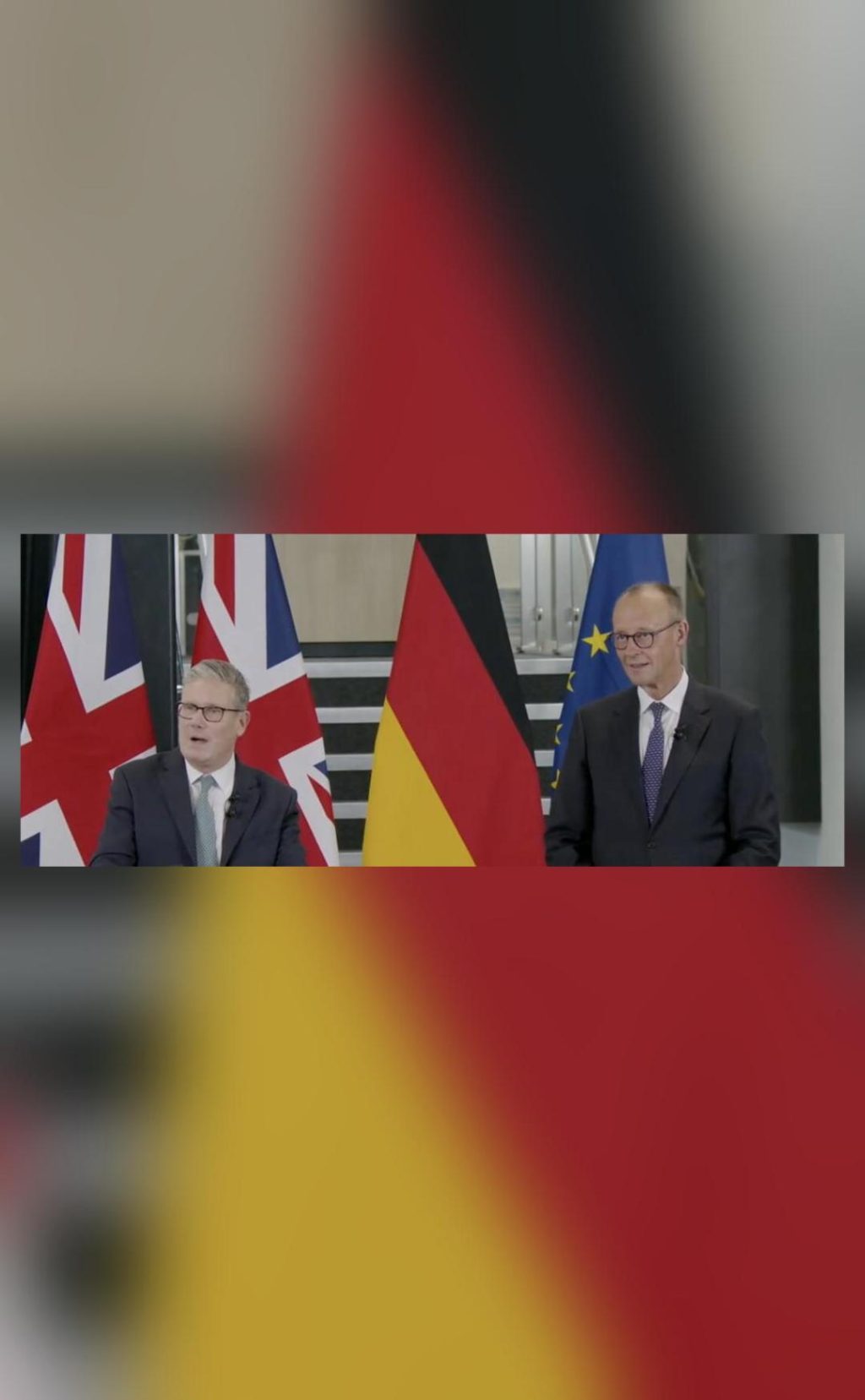
UK, Germany Sign Treaty to Enhance Defence & Migration Cooperation
In a significant move aimed at strengthening their bilateral relations, British Prime Minister Keir Starmer and German Chancellor Friedrich Merz signed a treaty on Thursday to boost defence and economic cooperation, as well as jointly tackle migrant smuggling. The pact marks an important milestone in the post-war era, with the two nations celebrating 80 years of peace and cooperation.
The treaty, dubbed the “Friendship Treaty”, is a comprehensive agreement that encompasses a range of areas, including defence, migration, and economic cooperation. The signing ceremony took place in Berlin, with both leaders emphasizing the significance of the agreement in deepening ties between the two nations.
In his remarks, Prime Minister Starmer highlighted the importance of the treaty in addressing shared challenges, saying, “This treaty is a testament to the enduring friendship between our two nations. We are committed to working together to address the threats we face, from climate change to terrorism, and to promoting peace and stability in our region and beyond.”
Chancellor Merz echoed Starmer’s sentiments, stating, “The treaty is a symbol of our strong and enduring partnership. We are committed to strengthening our defence cooperation, promoting economic growth, and working together to address the challenges of migration.”
One of the key aspects of the treaty is the plan to strengthen connectivity between the two nations. To achieve this, the UK and Germany have agreed to establish a new direct rail connection, which is expected to boost economic and people-to-people ties. The rail link will connect the UK’s port city of Hull with the German city of Hamburg, facilitating trade and tourism between the two nations.
The treaty also includes provisions for defence cooperation, with the UK and Germany pledging to work together to tackle emerging security threats. The two nations will share intelligence and expertise, and will collaborate on joint military operations and exercises.
In addition to defence and economic cooperation, the treaty includes a section on migration. The UK and Germany have agreed to work together to tackle migrant smuggling, with the aim of preventing human trafficking and protecting the rights of migrants. The two nations will also share intelligence and best practices to combat migrant smuggling.
The signing of the treaty is seen as a significant step forward in strengthening the UK-German relationship, which has been strained in recent years due to differences over issues such as Brexit and the Nord Stream 2 pipeline. The treaty is a testament to the enduring friendship between the two nations, and demonstrates their commitment to working together to address the challenges they face.
The treaty is also seen as a symbol of the UK’s commitment to its European partners, despite its decision to leave the EU. The UK has been seeking to strengthen its ties with European nations, and the treaty with Germany is seen as an important step in this direction.
In conclusion, the UK-German treaty is a significant development that marks an important milestone in the post-war era. The treaty is a testament to the enduring friendship between the two nations, and demonstrates their commitment to working together to address the challenges they face. The agreement is expected to boost defence and economic cooperation, and to strengthen connectivity between the two nations.



